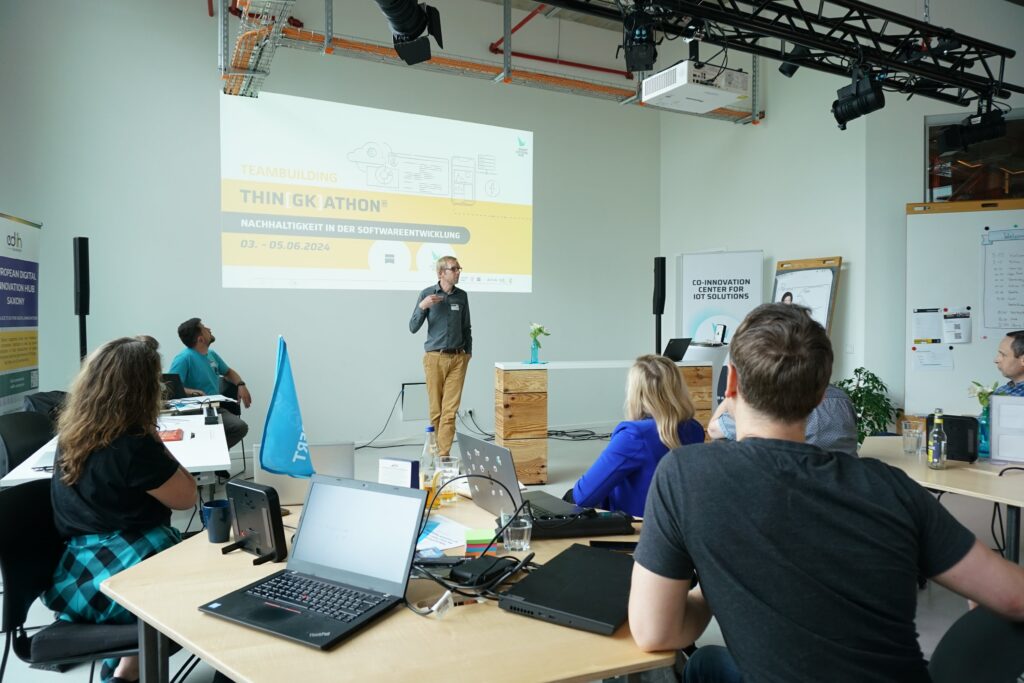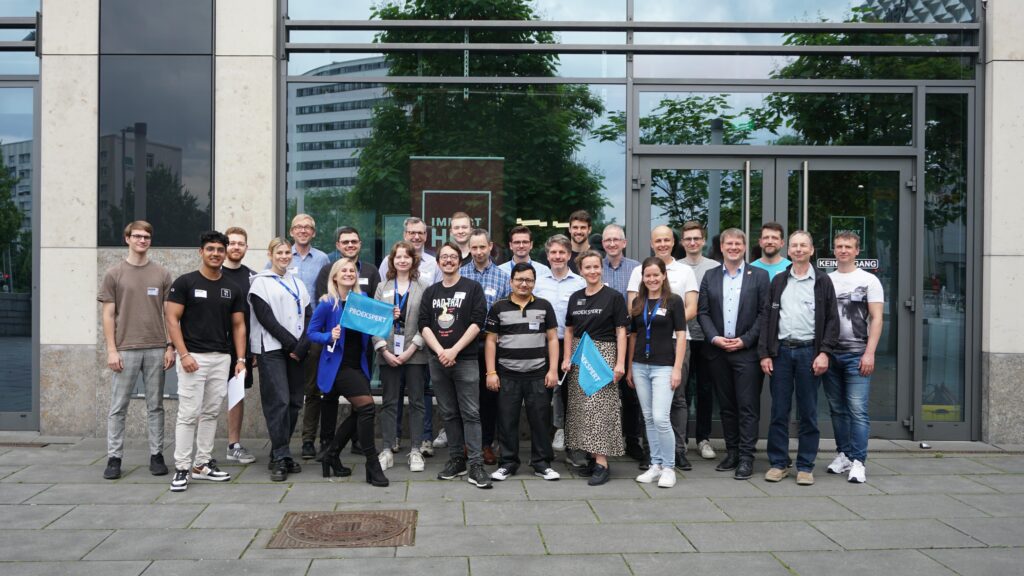To achieve our strategic goals, we work on Strategic Initiatives (SI) throughout the year, focusing on a defined topic. In October 2023, the Strategic Initiative Sustainability was launched to ensure that we can establish a strong position in this area. Sustainability has become increasingly important in all areas of life and society, and as such, it is becoming more important for us at ZEISS Digital Innovation (ZDI). Especially for future and growing generations, sustainability will play a significant role, even in the choice of employer. Our partner companies and customers will eventually wonder how seriously we take the issue of sustainability and what we are doing in this area.
What are the goals of the SI?
Our SI Sustainability is divided into two teams. The first team focuses on the aspect of business operations, while the second delves into sustainable software development.
The Business Operations team aims to develop a dashboard for our employees to get updates on ZDI’s ecological footprint metrics. Furthermore, ZDI’s carbon emissions in business operations will be analyzed to identify areas for improvement.
The Sustainable Software team aims to improve sustainability in our core business of software development. The steps to be taken are state of the art analysis in industry about sustainability practices, data driven analysis of our own software emissions and deriving a concept how to improve. Two communication initiatives will be developed for all employees, and at least two exchange sessions will be established between the different ZEISS units to discuss the concept of sustainable software development.
What has been done so far?
In this section, we will look at what has been done so far in both workstreams, starting with Business Operations.
In Sprint 0, we first focused on the various metrics used in sustainability reporting. We came across the Greenhouse Gas Standard (GHG) and its three scopes. Scope 1 (Burn) emissions are all emissions that are directly caused by ZDI and can be controlled, such as fuel for company cars or heating and cooling systems. Scope 2 (Buy) includes all emissions that are “bought” by ZDI, such as electricity. Scope 3 (Beyond) includes all emissions that ZDI has no direct control over, such as business travel or employee commuting.
In the next step, we contacted the strategic Key Group Program (KGP) Sustainability at ZEISS. In several meetings, we discussed what is being recorded at ZEISS and what might happen in the future, and whether we at ZDI can contribute. At the same time, we looked at what is already being recorded and prepared within ZDI.
As part of Sprint 0 of the Sustainable Software workstream, we have extensively researched the concept of sustainability and resource efficiency in software development. It was discovered that currently there are no standardized guidelines or ‘gold standard’ in this area. We received a table from the ZEISS Industrial Quality & Research segment (IQR) report on sustainable development, which allows us to analyze the sustainability of a software project.
In Sprint 1 we started the analysis of our own software based on the calculation table from IQR. Furthermore, we prepared a Thin[gk]athon together with the co-innovation center Smart Systems Hub including different partners from industry and university to dive deep into the ideation of improvement potential for sustainable and resource efficient development.


What are the next steps?
As part of Sprint 2, our SI had an important goal in mind: to conduct a Thin[gk]athon. This event took place in June with remarkable success at the Impact Hub in Dresden. Participating teams had three days to develop innovative solutions on how to minimize CO2 emissions during the development of digital solutions. The results were impressive, and three teams were named as winners: “Carbon Cutter,” “Cooler Climate Coders,” and “Proekspert AS.”
Currently, the Workstream Sustainable Software is analyzing and evaluating the results of the Thin[gk]athon as part of Sprint 2.
At the same time, our colleagues in the Workstream Business Operations are working on new guidelines for business travel. To make the emissions from heating, air conditioning, and electricity consumption transparent, we are working on creating a Power-BI dashboard. We have also selected a project to calculate the emissions produced. Additionally, together with our colleagues in Marketing, we are producing content to highlight our efforts towards sustainability. We remain committed and continuously work towards making our contribution for a sustainable future.
The final step of this SI is to determine how to implement the topic of sustainability. There are several areas that require attention: how can we incorporate this theme into our customer communication, how can we integrate sustainable and resource-efficient software development practices into our current workflow and adapt to future developments in this field.
We are staying on top of the issue and will continue to help shape sustainability in software development.